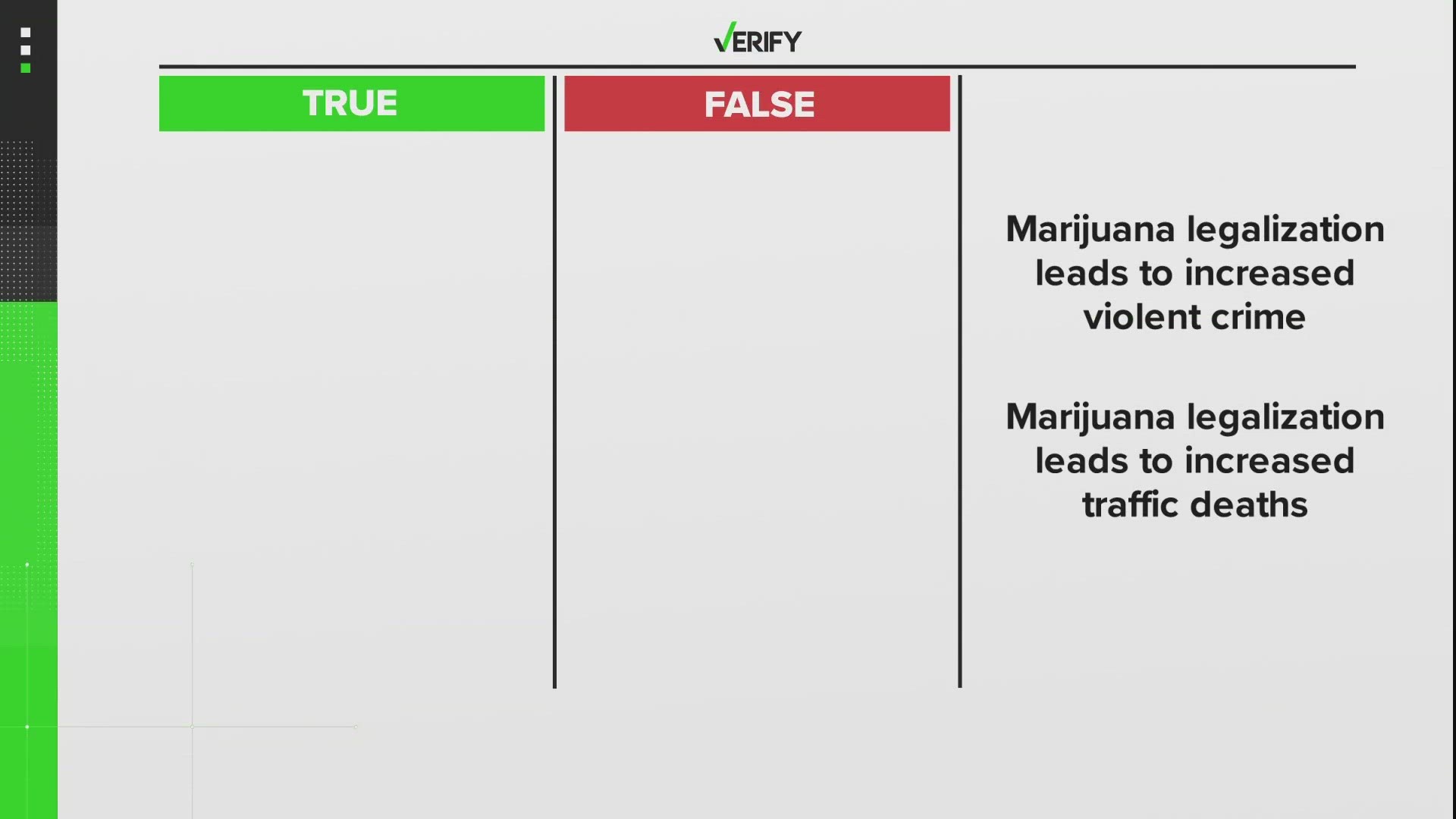WASHINGTON D.C., DC — Recreational marijuana will not come to Virginia any time soon.
The push to create a market for the regulation and sales of marijuana for adult use went up in smoke when Governor Glenn Youngkin vetoed the bills that would have authorized it.
Gov. Youngkin (R-Virginia) listed several reasons in his veto notes on the bills from the House and Senate and in a statement to WUSA9.
"States following this path have seen adverse effects on children’s and adolescent’s health and safety, increased gang activity and violent crime, significant deterioration in mental health, decreased road safety, and significant costs associated with retail marijuana that far exceed tax revenue," Youngkin wrote in his statement. "It also does not eliminate the illegal black-market sale of cannabis, nor guarantee product safety. Addressing the inconsistencies in enforcement and regulation in Virginia’s current laws does not justify expanding access to cannabis, following the failed paths of other states and endangering Virginians’ health and safety."
Proponents of creating the recreational marijuana market believed his decision was a political response to the torpedoing of a proposed $2 billion arena project to bring the Washington Wizards and Washington Capitals to Potomac Yard in Alexandria.
Jushi Holdings, a company with a marijuana growing facility in Virginia, wrote in a statement to WUSA9:
"It comes as no surprise that the cannabis veto comes a day after the Governor’s half baked sports arena plans fell apart very publicly, this action shows his continued support of organized crime and cartels. With more than 60% of Virginians supporting adult-use cannabis, it’s a shame Governor Youngkin continues to tell adults what they should and shouldn’t be able to do with their own bodies. He has taken a stance against that basic right again and again, seemingly believing he knows what’s better for Virginians than they do. This industry will continue to push forward and be on the right side of history in the Commonwealth long after the Governor’s legacy has gone up in smoke."
CLAIM
States that legalized recreational marijuana use have seen an increase in violent crime.
SOURCES
ANSWER
While some states saw higher rates of violent crime, others experienced reductions in violent crime compared to the national average, while most followed the national trend.
WHAT WE FOUND
The National Conference on State legislatures says 23 states and the District of Columbia have passed laws to allow the consumption of marijuana for adult recreational use.
In his letter to the legislature explaining his decision to veto the bills, Gov. Youngkin wrote, "the uniform experience of other states that have legalized retail cannabis is increased cannabis use, including among minors, increased THC potency, and increased crime." He added that, "cannabis commercialization contributed to increased crime among all categories."
In a 2021 report, the CATO Institute analyzed data compiled by the FBI on violent crime rates for 13 states with mature, regulated marijuana markets. It found that most of those states saw trends in their per capita violent crime rates that were similar to the national average. Alaska and Massachusetts had significant increases in violent crime compared to the national average, while violent crime rates in Maine and Nevada dropped by larger amounts.
A 2021 research paper in the Journal of the American Medical Association reached a similar conclusion. It found that legalization of marijuana did not correspond with an increase in injuries caused by violence, though it did find an increase in self-harm injuries.
CLAIM
States that legalized recreational marijuana use saw increased traffic fatalities
SOURCES
ANSWER
Academic research shows that increased traffic deaths tend to follow the legalization of recreational marijuana use.
WHAT WE FOUND
In describing the threat posed by the potential of having more drivers on the road under the influence of marijuana, Gov. Youngkin wrote in his veto letter, "In Colorado, after legalization, there was a 40% increase in fatal crashes where the driver tested positive only for THC. All marijuana-related traffic fatalities increased by 76.2%."
Academic research more broadly backs up his claim. The International Journal of Environmental Research and Public Health published a paper in 2023 that analyzed nearly 30 studies about marijuana’s impact on driving.
It showed that most studies found traffic deaths increased after states legalized adult use, and were higher than in states that did not legalize it.
The Governors Highway Safety Association reported that Colorado saw a 16% overall increase in traffic deaths in the four years after recrational marijuana use began compared to the four years prior. In that same period, marijuana-related traffic deaths increased by 66%.

